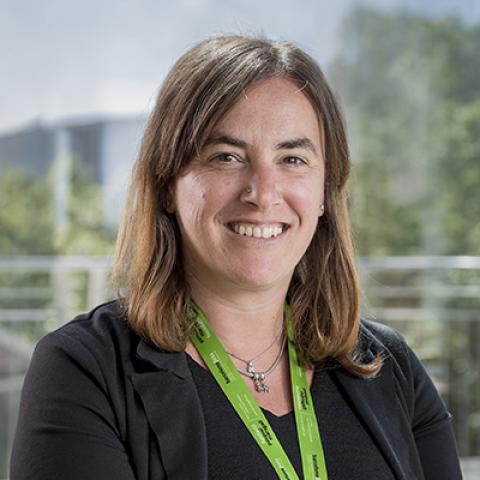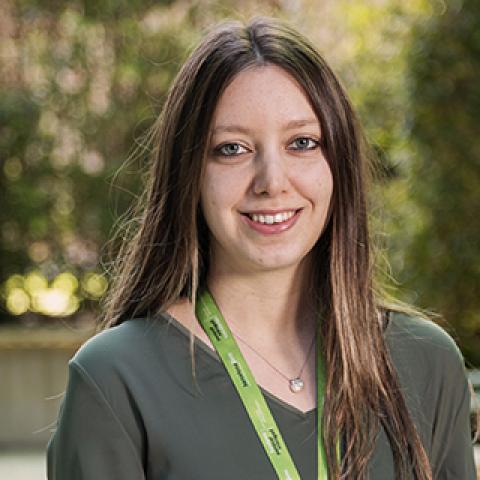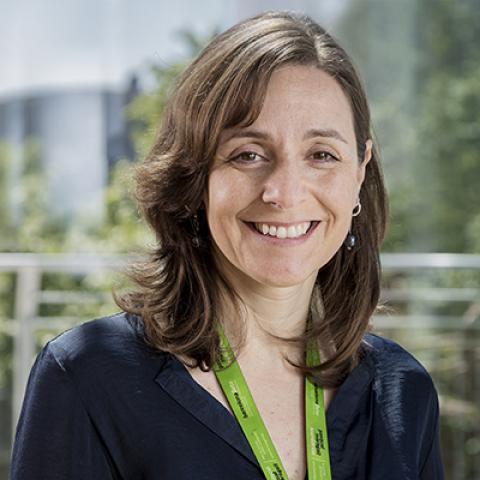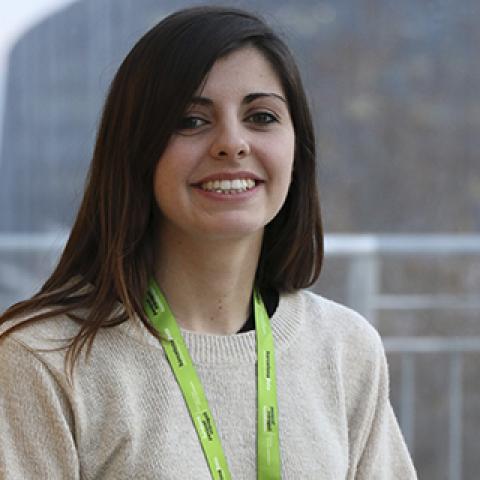11 Feb | 2021
"Contributing in the field of Alzheimer's is what motivates me the most to give everything in my work"
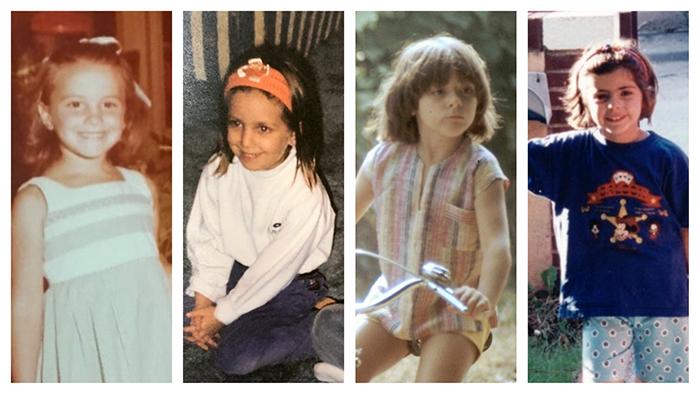
What did these BBRC scientists want to be when they were little?
One more year, the Barcelonaβeta Brain Research Center (BBRC) joins the celebration of the International Day of Women and Girls in Science, with the testimony of 4 scientists who work for a future without Alzheimer's.
Carolina Minguillón, Manager of the Research Office
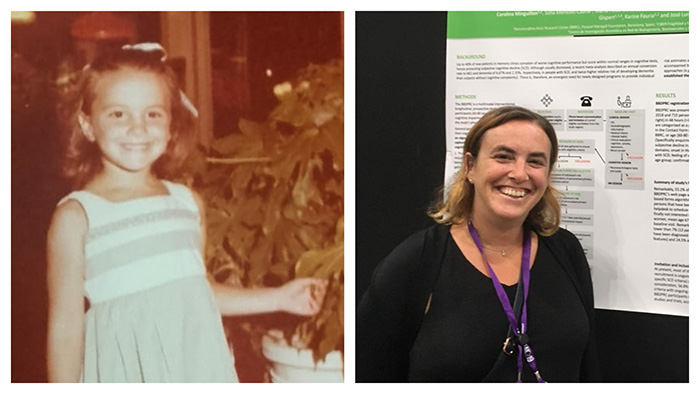
I remember perfectly that since I was very little I loved animals and said that I wanted to be a doctor, and not exactly a family doctor ... I wanted to operate open body! I thought about this roughly from the first grade to A Level, when I discovered that I really liked writing and they began to tell us about genetics. I was so fascinated by Mendel's laws that I realized that what I wanted to do was laboratory research in the field of genetics.
In one of those professional orientation visits that they gave us in the last years of the institute, I was able to speak with Professor Mercè Durford of the University of Barcelona (UB), who spoke to us about Biology, asked me what I liked, and when mentioning the research in genetics, she recommended that I choose this career. And the truth is that I loved her, except for the first few months that she thought I was wrong because we only did math, chemistry and physics.
Very early on at the UB, a professor (Dr. Jordi Garcia, who would later become my thesis supervisor) asked me if I wanted to do an internship in his laboratory (from the Genetics department!). For me it was a surprise, because then I thought that the university only taught classes and not research. In 3rd grade I already entered his laboratory and there I continued my career until I got my doctorate. Then I did a postdoc in England for 5 years, and I returned to Barcelona with a Ramón y Cajal scholarship to continue working in my field of specialty: developmental genetics.
There came a time when I felt that childhood vocation to work in something more medical and decided to take a Master's Degree in Clinical Research. This is when I left the laboratory and started working at the BBRC in management projects and clinical research in humans. I guess I like my job at BBRC so much now because it combines writing project and grants with clinical research with one clear goal: to be able to prevent Alzheimer's disease.
Finally, I can say that science has brought me many joys, but also frustrations. First of all, I have been able to enjoy a profession that I am passionate about and travel a lot. In fact, without science, I probably wouldn't have met my partner and the father of my children! But, on the other hand, it is also true that the final stages have been frustrating, since it is well known that in Spain there are very few positions and many candidates for each scientific position. However, I think that the global journey has been worth it and it is being very rewarding.
Müge Akinci, predoctoral researcher
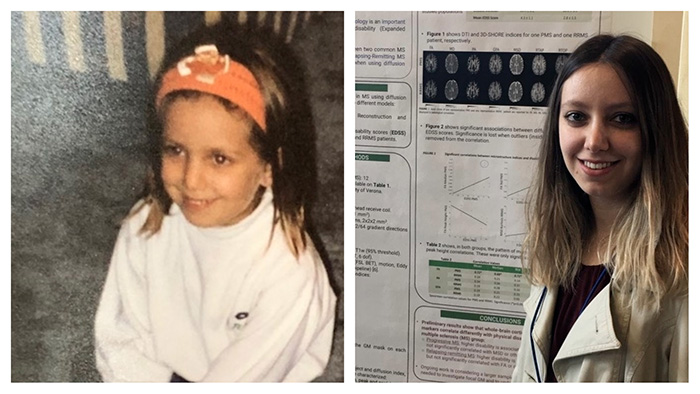
When I was a child, I wanted to be a veterinarian as I like animals a lot. However, I discovered soon that being a veterinarian does not mean I will pet animals everyday!
Apart from that anecdote, I have always been fond of exploring the world around me and observing the acts, thoughts, feelings of people, which is why I decided to study Psychology at the University of Yeditepe (Istanbul). During the second year of my studies, I had a lecture on cognitive psychology and it became my favorite lecture because of the interesting topics covered in brain and behavior association. In order to become more familiar with these fields, I had some internships/voluntary works in cognitive science and neuropsychology, and I finally had a master degree in Cognitive Neuroscience.
Meanwhile, I lost some members of my family because of the brain tumors. I witnessed the changes in their personality, behavior, speech and body functions associated with the problems in their brains. I was terrified but at the same time very curious, and observing these fed my interest in understanding the brain structure, function and specifically brain disorders. All these experiences made me realize that I want to pursue a career in brain sciences.
I know that my career is still in the first steps, as I am working as a PhD student at BBRC, but I am proud to say that I am learning so many things in this journey. Science taught me there is not a single approach to the world around me, and there can be many different ways to solve a problem. My research experiences in different countries made me more open-minded and I learnt to work independently as well as enjoy teamwork with people from many different cultures. In addition, thanks to science I am learning to work hard, manage my time, be patient, and see the difficulties as challenges that help me improve my professional and personal qualifications.
Finally, what I like most about my work is that there is always something more to learn and discover in science. The more I investigate, the more passionate I am about finding answers to the questions. I enjoy the process of reading, writing, critical thinking, exploring as well as the feeling of having contributed to the research field that I work in and trying to reach and help people by doing so.
Gema Huesa, Data Center project manager
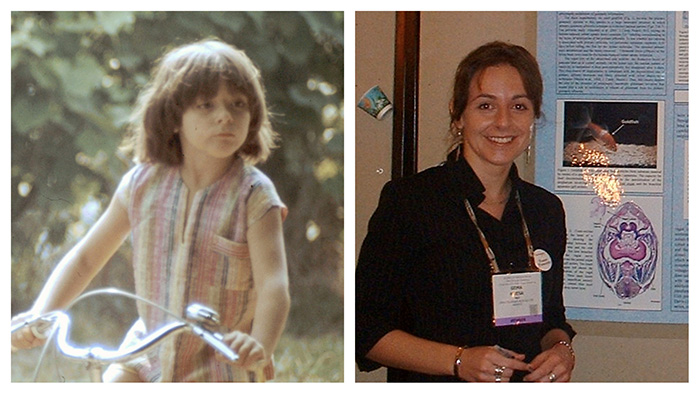
When I was little I liked to build things, paint, sew with my grandmother, collect what I found in the forest and categorize it, but I did not have a profession or career idea in my head.
In 8th grade, I had a wonderful science teacher, very motivating and inspiring. When I went to the secondary school, my biology and geology teacher was my reference, we had a very prepared laboratory and when we went out to the field, we always learned a lot with her. In addition to these references, I think the series “Once upon a time life” also contributed to my interest in science. I think it is inspiring and very innovative, especially for that time.
I started my scientific career with a degree in Molecular Biology at the University of Santiago de Compostela, and later I obtained a doctorate in Neurobiology and Neuroscience at the University of A Coruña. Since then, I have worked as a postdoctoral researcher in laboratories in different cities, being in Denver, Colorado, where I did my first postdoc and matured as a researcher. Starting in 2011, I put down the gown and pipettes to dedicate myself to scientific management, knowledge transfer and project management. Currently, I am part of the BBRC Data Center, where I work on projects related to data quality, integrity and protection.
Looking back, if I think about what science has given me, I could write many pages! On a professional level, it has taught me to open my mind, to ask, to be tenacious, to get up after falling. Science helps you structure your brain, learn new things, find out why, the wheel never stops. On a personal level, science has offered me the opportunity to meet wonderful people, to travel, to grow as a person and be happy.
On the other hand, I can also say what I like the least. In my laboratory years, the worst thing was working with animals (fish, frogs, rats and mice). I am aware that they are necessary to advance knowledge and research, but it is the part of the work that I do not miss.
Irene Cumplido, predoctoral researcher
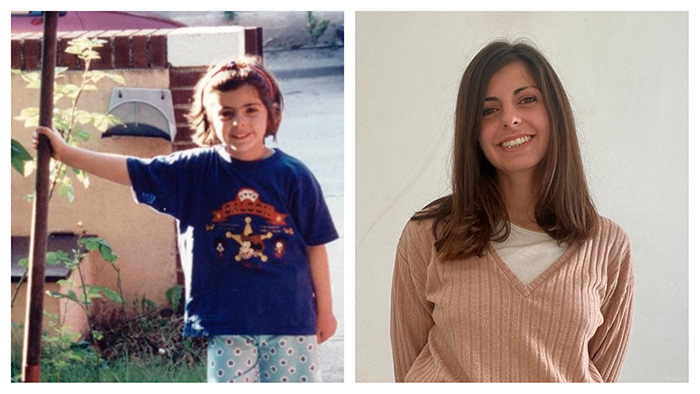
My interest in science was piqued when I was little (even if I didn't know it), as my father and I assembled remote controlled planes and flew them every weekend. I was always very curious to understand how things worked around me, but I was also very into art subjects. As a child, I imagined myself as an adult as a painter, writer and fighter pilot, although the latter remained in a childhood dream.
Once at the secondary school, I realized that, although I still loved art subjects, I really liked mathematics, physics and chemistry, and I began to think that I could look for work in those fields. I was not very clear about what I wanted to do until I discovered that there was a career in Biomedical Engineering, in which I could combine the engineering part with the human body. I studied that degree at the Carlos III University of Madrid, and after that, I did a master's degree in the same field.
Now I work as a predoctoral researcher at the BBRC, where science continues to give me the ability to assemble other types of “planes” with a goal that I love. Science allows me to see the world from a "why does it happen?" and a “how does it work?” and it gives me the possibility to try to answer those questions using logical and critical reasoning. Although I still have a lot to learn, I think it is a tough road, but very satisfying.
As for my references, on a personal level they are my parents, because if I think about how I got to where I am now, it's all thanks to them. On a scientific level, I had professors in my degree (Juan José Vaquero, Arrate Muñoz and Javier Pascau), who made me passionate about Biomedical Engineering and wanted to continue studying and researching. And currently, my great references are my mentors Juan Domingo Gispert and Verónica Vilaplana, from whom I am learning a lot and they motivate me to continue searching and answering the right questions in the best possible way.
In short, what I like most about my job is the flexibility and dynamics: you always have to be learning new things and looking for new questions. And, in my case, being able to contribute in the field of Alzheimer's disease is what motivates me the most to give my all in my work.
Women at the BBRC
Currently, 67% of the BBRC staff are women who occupy different positions of responsibility and come mainly from scientific-technical careers: Medicine, Nursing, Psychology, Mathematics, Statistics, Physics, Biochemistry, Biology, Computer Engineering or Biomedical Engineering, among others.
In parallel, the BBRC has recently signed the 12 commitments of the Charter of Hypatia of Alexandria for gender equality and female leadership in science. The scientific manager of the center, Dr. Karine Fauria, is the BBRC's equality agent for the activation of these commitments in an initiative promoted by AQuAS with the support of the Department of Health and the 'la Caixa' Foundation.
The United Nations General Assembly promoted the International Day of Women and Girls in Science with the aim of achieving full and equitable access and participation in science, and achieving gender equality and the empowerment of women and girls.

